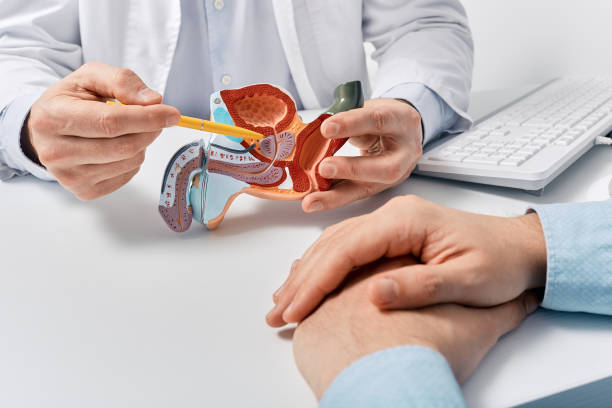Rising Cases of Prostate Cancer and the Need for Early Intervention
Understanding the Growing Threat of Prostate Cancer
Prostate cancer has long been considered a disease affecting older men. However, recent trends indicate a significant rise in cases among younger individuals. This alarming development highlights the urgent need for awareness, early detection, and timely medical intervention.
Prostate Cancer Treatment in Meerut – Expert Care at Valentis Cancer Hospital
If you or a loved one is facing prostate cancer, seeking expert medical care is crucial. Valentis Cancer Hospital is a dedicated center for all types of cancer treatment, offering the latest advanced techniques such as robotic surgery, CyberKnife, and precision-targeted therapies. Our hospital provides cutting-edge therapies and personalized care to improve patient outcomes.
Why is Prostate Cancer Increasing?
Several factors contribute to the rising incidence of prostate cancer. While improved screening has led to more diagnoses, lifestyle changes, environmental exposures, and genetic factors also play a significant role.
- Unhealthy Diet and Lifestyle Choices
- High consumption of processed foods, red meat, and unhealthy fats
- Low intake of fruits, vegetables, and fiber-rich foods
- Increased alcohol consumption and smoking
- Obesity and Sedentary Lifestyle
- Excess body weight contributes to inflammation and hormonal imbalances
- Lack of physical activity is linked to higher prostate cancer risk
- Environmental and Hormonal Influences
- Exposure to industrial pollutants, pesticides, and chemicals
- Use of hormone-based supplements affecting testosterone levels
- Genetic and Hereditary Factors
- A family history of prostate cancer increases the likelihood of developing the disease
- Genetic mutations like BRCA1 and BRCA2 are associated with aggressive forms of prostate cancer
Why Are Younger Men at Risk?
While prostate cancer is commonly associated with men over 50, younger individuals are increasingly being diagnosed. Several factors contribute to this trend:
- Hormonal Imbalances and Early Metabolic Disorders
- Modern lifestyle habits disrupt testosterone levels and prostate health
- Stress, poor diet, and inadequate sleep impact immune function
- Higher Prevalence of Obesity and Diabetes
- Obesity and metabolic disorders elevate inflammation, increasing cancer risk
- High insulin levels have been linked to aggressive prostate cancer forms
- Lack of Regular Health Screenings
- Many younger men do not undergo routine prostate exams
- Symptoms are often ignored or misdiagnosed, leading to late-stage detection
How to Lower the Risk of Prostate Cancer?
- Adopt a Nutritious Diet: Increase intake of leafy greens, healthy fats, and antioxidants.
- Exercise Regularly: Staying active helps maintain a healthy weight and supports hormonal balance.
- Undergo Routine Screenings: Early detection through PSA tests and prostate exams is vital.
- Avoid Harmful Chemicals: Reduce exposure to industrial toxins and endocrine disruptors.
- Manage Stress and Sleep: Mental well-being and adequate sleep contribute to overall health.
Advanced Treatment Options at Valentis Cancer Hospital
Valentis Cancer Hospital is a specialized cancer treatment center, equipped with the latest advancements in prostate cancer care, including:
- Robotic-Assisted Surgery – Minimally invasive procedures for greater precision and faster recovery.
- CyberKnife Radiation Therapy – Highly targeted radiation that minimizes damage to healthy tissues.
- Immunotherapy & Hormonal Therapy – Cutting-edge treatments personalized to each patient.
- MRI-Guided Focal Therapy – Advanced imaging for precise tumor targeting with minimal side effects.
Conclusion
The rising cases of prostate cancer, particularly among younger men, emphasize the importance of proactive health measures. While genetics play a role, lifestyle choices significantly impact risk levels. Valentis Cancer Hospital provides comprehensive Prostate Cancer Treatment in Meerut, ensuring patients receive top-quality medical care with advanced techniques such as robotic surgery, CyberKnife, and personalized therapies. Prioritizing early detection and adopting a healthier lifestyle can significantly reduce the risk and enhance overall well-being.
